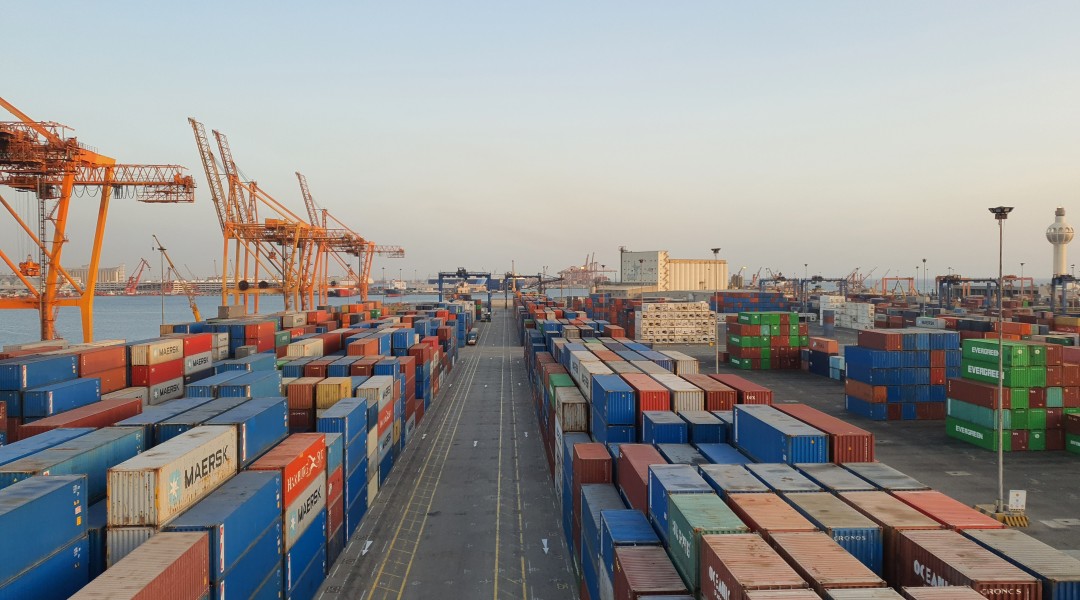BAKU, Azerbaijan, August 8. Estonian Minister of Economic Affairs and Industry Erkki Keldo today presented the government’s economic cabinet with the Team Estonia export action plan, aimed at boosting the country’s position in the global marketplace, Trend reports.
The strategy focuses on expanding export capacity, diversifying markets, shaping Estonia’s international image, and deepening cooperation between the government and the business sector.
“Exports account for nearly 80 percent of Estonia’s economy, which means that for long-term economic growth, we must sell more goods and services abroad. After two years of decline, Estonia’s exports are back on a growth path.
To support this at the national level, we have worked with industry associations to create systematic and targeted actions that will bring maximum benefit to the economy and our companies,” Minister Keldo said.
In accordance with the newly instituted framework, the cohort of
enterprises engaging in exports exceeding 10 million euros per
annum is projected to escalate from 615 to 700 by the year
2028.
Estonia is strategically positioning itself to amplify its
aggregate export throughput from 30 billion euros to a projected 43
billion euros within the forthcoming quadrennial period. In pursuit
of this objective, strategic business hubs will be established in
Riga, London, Paris, Berlin, and Copenhagen, providing localized
market facilitation for Estonian enterprises.
Supplementary support will be extended to leverage investment
prospects in Germany, while targeted intergovernmental
collaboration frameworks will facilitate corporate penetration into
emerging markets.
To strengthen Estonia’s global image, the e-presentation center’s services will be expanded, more Estonian export success stories will be shared in international media, and efforts will be made to promote Estonia as a smart industrial nation.
An online export portal will also be launched to centralize essential information for businesses and improve communication between the state and entrepreneurs.
The action plan prioritizes eight high-value sectors expected to deliver the greatest economic benefit: timber, maritime, food and beverages, machinery and metal, defense, information and communication technologies, green technologies, and health technologies.
Businesses in these focus sectors will have access to export advisers in target markets, networking opportunities, trade fair participation, business missions, export financing and insurance, and guidance on local business environments.
“Such services help companies gain a foothold in even the most challenging and distant markets. For example, Estonian food producer Balsnack recently shipped a container of potato crisps to India—a direct result of a successful trade mission,” Keldo noted.
Fundamental export facilitation mechanisms will persist for all
enterprises with international trade aspirations.
The sectors were selected in alignment with four strategic
imperatives delineated in Estonia’s TAIE development framework:
comprehensive digital integration across all domains, advancements
in health technologies and services, optimized value-added
utilization of indigenous resources, and innovative, sustainable
energy paradigms.
Supplementary factors encompassed the industry's scale, its impact
on gross domestic product, aggregate export figures, value
generation metrics, and prospective tax revenue streams.
The Team Estonia initiative is led jointly by the Ministry of Economic Affairs and Communications, the Ministry of Foreign Affairs, and Enterprise Estonia (EIS).
The Ministry of Economic Affairs shapes the strategy, the Foreign Ministry provides diplomatic and representation support, and EIS focuses on delivering services to take Estonian businesses to the international stage and attract foreign investment.
Stay up-to-date with more news on Trend News Agency's WhatsApp channel







